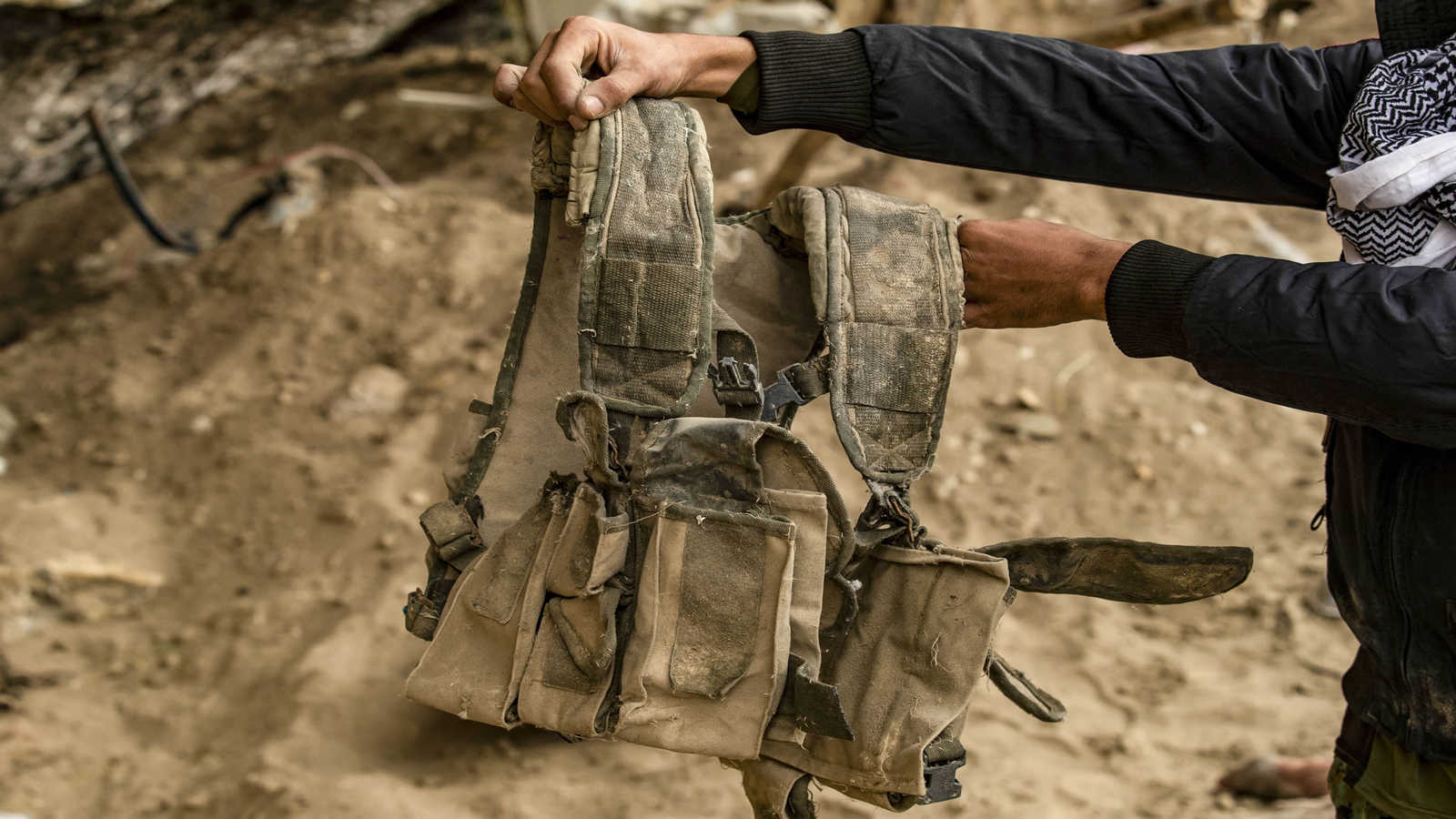
Despite the elimination of the Islamic State from its last official territory in Syria in March 2019, IS cells that have been holed up in desert areas in eastern and central Syria remain active and terrorize civilians and soldiers alike.
Backed by air support from the US-led international coalition against the Islamic State (IS), the Kurdish-led Syrian Democratic Forces (SDF) raided the village of Abriha in the eastern countryside of Deir ez-Zor on Dec. 19 and dismantled an IS network. The operation resulted in the arrest of Ali al-Jadoua, a prominent IS leader, along with his two assistants Khalaf al-Qura and Muhammad al-Qura.
An SDF officer told Al-Monitor on condition of anonymity, “Jadoua held several positions in IS. He was the mastermind behind the assassination of some Arab tribal sheikhs and leaders in the region. He also orchestrated the killing of a number of SDF forces and was behind the extortion of civilians and merchants. He coordinated with other IS leaders who are yet to be found and arrested.”
He added, “During the period of IS’ control of Raqqa and Deir ez-Zor, Jadoua carried out field executions against the prisoners of the Syrian regime forces and beheaded [regime supporters], including women. He extorted civilians through his cells and threatened them with kidnapping and killing if they failed to pay taxes to the organization. He threatened merchants who did not abide by his rules either with beheading, bombing their houses or booby-trapping their cars.”
Samir al-Tayel, who hails from Deir ez-Zor, told Al-Monitor that the assassinations carried out by IS cells in Deir ez-Zor have dramatically escalated recently.
“My brother was killed by unidentified individuals who were riding a motorbike in front of his house last summer. One of them called my brother’s cellphone and identified himself as a soldier of the [Islamic] caliphate and threatened to kill my brother, who was working as a food merchant, if he refrained from paying the zakat [Islamic charity] to the caliphate. They demanded [my brother] to pay $5,000. A week later, they assassinated him,” he added.
Jamil Khalil, an SDF Arab fighter, told Al-Monitor, “A few weeks ago, the official in charge of guarding the oil wells at al-Tanak oil field, northeast of Deir ez-Zor, survived an attack by IS militants who managed to kidnap a number of Iranian forces and beheaded and killed soldiers from the Syrian regime.”
Media sources close to the Syrian opposition said IS conducted a large-scale attack Dec. 30, targeting military buses of the Syrian regime forces on the Deir ez-Zor-Damascus highway in the Kabajab area, 55 kilometers (34 miles) southwest of Deir ez-Zor city. The attack killed 37 soldiers, including eight officers, and led to a number of injuries, some of which are serious.
According to other sources close to the regime, the armed groups believed to belong to IS cells targeted civilian buses, killing 28 people and wounding 13 others. The sources described the Dec. 30 attack as the largest recently given the high death toll, which might increase further due to the number of injuries registered.
Another attack targeted buses traveling down a highway in central Syria to the central Salamiyah town on Jan. 3, killing at least nine people. The attack was also blamed on IS.
Mustafa Ibrahim, an activist and journalist from Deir ez-Zor, told Al-Monitor, “Despite the collapse of the caliphate in Syria and despite the SDF’s elimination of IS’ last stronghold of Baghouz on the Syrian-Turkish border in March 2019, with support from the US-led coalition, IS cells remain active in Deir ez-Zor and its countryside and are carrying out terrorist operations against civilians, regime forces and the SDF.”
He said, “IS cells are holed up in secret tunnels previously dug in the desert, and the majority of their armed men hail from the region, committing terrorist acts and terrorizing civilians.”
Ibrahim added, “IS cells even targeted the vicinity of the US base at al-Omar oil field in the Deir ez-Zor countryside with mortar shells from a cemetery near the town of Theban in Deir ez-Zor countryside in mid-December.”
Al-Monitor spoke with Jamila Jadaan, a human rights activist from the town of Bouhasan in Deir ez-Zor countryside who works with relief organizations. She expressed the civilians’ concerns over their lives saying, “People are staying in their homes as they are scared of going out to the market because of IS explosive devices and car bombs, not to mention the bullets they fire at people, merchants and employees in the [Kurdish-led] autonomous administration, where they also throw bombs on people’s houses.”
Jadaan noted, “Women and children are afraid to go out or go to school for fear of being sniped at or kidnapped. The sons of many women have been kidnapped by IS. Some mothers told me that the bodies of the abductees are often found by the security forces or their families either on the roads or between trees, and they are often decapitated.”
She concluded, “IS is still active in the Syrian desert and is killing soldiers from the SDF, the Syrian regime and the Iranian forces. Even the US soldiers and civilians I meet describe their lives to me as an adventure.”
 Eurasia Press & News
Eurasia Press & News



